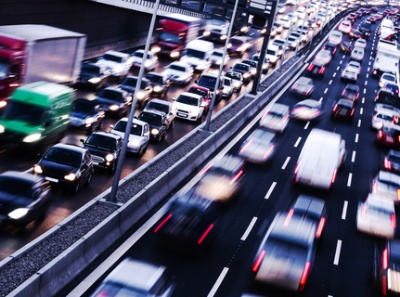Mobility on the move – how will Switzerland drive into the future?
- 9/3/18 9:24 AM
- Kirsten Oswald
Konstantinos Boulouchos and David Jonietz comment in an article in bulletin.ch

More traffic jams, crowded trains and traffic bottlenecks: mobility needs jeopardize the Swiss energy and climate goals. Electrification, automation and more flexible mobility solutions could satisfy the growing demand for mobility in a more energy efficient manner.
Within the next 40 years, fossil energy carriers need to be replaced to meet the climate goals of the Paris Agreement, which Switzerland committed to as well. This means that gasoline, diesel and natural gas should no longer fuel our cars. However, in comparison to other energy sectors, the transport sector is more difficult to decarbonize. This is in part because mobility is a consumable good and people do not always make rational decisions. Cars are connected to our emotions much more than energy sources or buildings. Moreover, powerful motors and large vehicles like SUVs are popular even if this does not make much sense energetically or financially.
While both active transport (walking and biking) and a shift to public transport are helpful to reduce emissions from transport, their contribution is relatively small, as the majority of routes in Switzerland are covered by car. Therefore, electromobility appears to be the golden solution. However, an entire Swiss fleet of electric cars would require substantial additional energy (~25% of the current total Swiss consumption) without considering the forecast increase in mobility demand. Fulfilling this requirement in a carbon-neutral way becomes difficult when considering the phasing-out of nuclear power and makes little sense if electricity with a higher CO2 footprint is then imported. As long as the energy sector is not decarbonized, intermediate solutions like hybridization and increased use of lower emission fuels like natural gas could reduce the carbon burden substantially.
Not only replacing energy carriers, but also individual, multimodal and flexible transport solutions can contribute to reducing greenhouse gas emissions. Digitalization and the fact that almost everyone owns a smartphone provide a vast amount of data about people’s movements that could be used to find more energy efficient transport paths. Projects like GoEco! and SBB Green Class, carried out in collaboration with researchers from SCCER Mobility, help develop new “mobility as a service” offers and assess the emission reduction potential of such measures.
This text is based on an article that appeared in bulletin.ch in June 2018. Read the entire bulletin.ch article (in German or French) to get the whole story.
Konstantinos Boulouchos is Head of SCCER Mobility and Professor for Aerothermochemistry and Combustion Systems at ETH Zurich. David Jonietz leads the Mobility Information Engineering Lab at ETH Zurich that collaborated in the GoEco! and SBB Green Class efforts.
!!! This document is stored in the ETH Web archive and is no longer maintained !!!